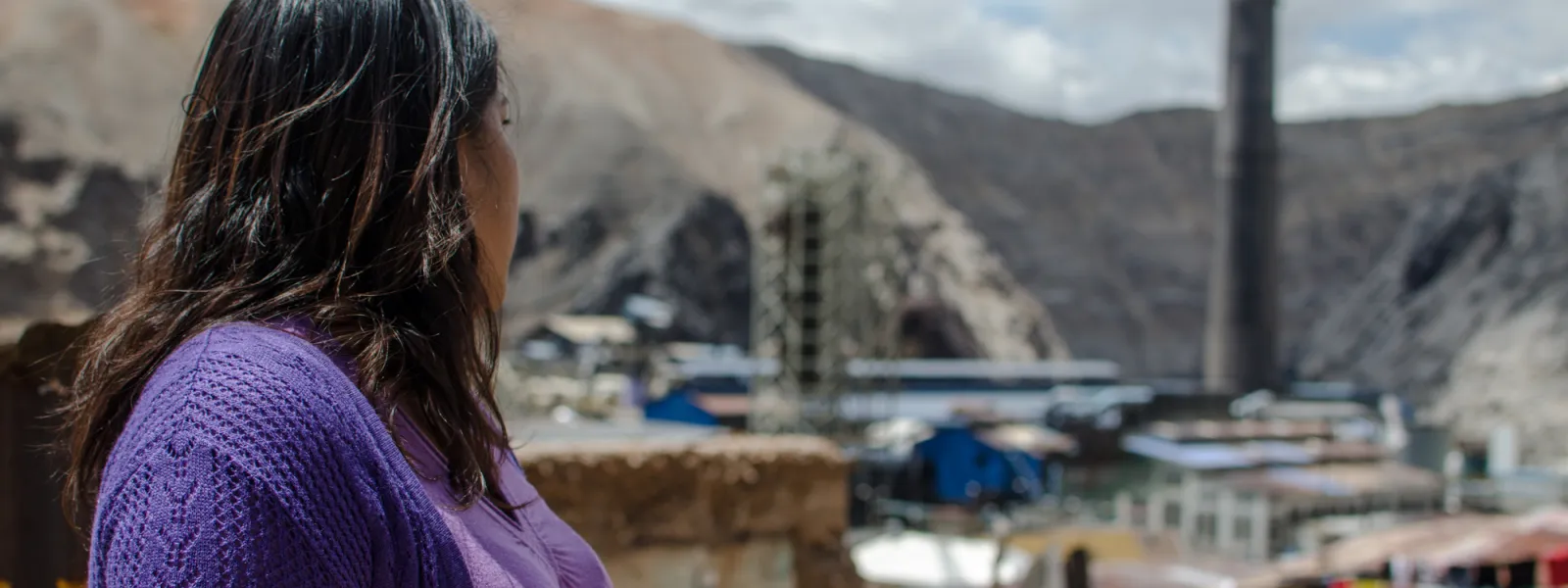
Project
Protecting the health of La Oroya's residents from toxic pollution
For more than 20 years, residents of La Oroya have been seeking justice and reparations after a metallurgical complex caused heavy metal pollution in their community—in violation of their fundamental rights—and the government failed to take adequate measures to protect them.
On March 22, 2024, the Inter-American Court of Human Rights issued its judgment in the case. It found Peru responsible and ordered it to adopt comprehensive reparation measures. This decision is a historic opportunity to restore the rights of the victims, as well as an important precedent for the protection of the right to a healthy environment in Latin America and for adequate state oversight of corporate activities.
Background
La Oroya is a small city in Peru’s central mountain range, in the department of Junín, about 176 km from Lima. It has a population of around 30,000 inhabitants.
There, in 1922, the U.S. company Cerro de Pasco Cooper Corporation installed the La Oroya Metallurgical Complex to process ore concentrates with high levels of lead, copper, zinc, silver and gold, as well as other contaminants such as sulfur, cadmium and arsenic.
The complex was nationalized in 1974 and operated by the State until 1997, when it was acquired by the US Doe Run Company through its subsidiary Doe Run Peru. In 2009, due to the company's financial crisis, the complex's operations were suspended.
Decades of damage to public health
The Peruvian State - due to the lack of adequate control systems, constant supervision, imposition of sanctions and adoption of immediate actions - has allowed the metallurgical complex to generate very high levels of contamination for decades that have seriously affected the health of residents of La Oroya for generations.
Those living in La Oroya have a higher risk or propensity to develop cancer due to historical exposure to heavy metals. While the health effects of toxic contamination are not immediately noticeable, they may be irreversible or become evident over the long term, affecting the population at various levels. Moreover, the impacts have been differentiated —and even more severe— among children, women and the elderly.
Most of the affected people presented lead levels higher than those recommended by the World Health Organization and, in some cases, higher levels of arsenic and cadmium; in addition to stress, anxiety, skin disorders, gastric problems, chronic headaches and respiratory or cardiac problems, among others.
The search for justice
Over time, several actions were brought at the national and international levels to obtain oversight of the metallurgical complex and its impacts, as well as to obtain redress for the violation of the rights of affected people.
AIDA became involved with La Oroya in 1997 and, since then, we’ve employed various strategies to protect public health, the environment and the rights of its inhabitants.
In 2002, our publication La Oroya Cannot Wait helped to make La Oroya's situation visible internationally and demand remedial measures.
That same year, a group of residents of La Oroya filed an enforcement action against the Ministry of Health and the General Directorate of Environmental Health to protect their rights and those of the rest of the population.
In 2006, they obtained a partially favorable decision from the Constitutional Court that ordered protective measures. However, after more than 14 years, no measures were taken to implement the ruling and the highest court did not take action to enforce it.
Given the lack of effective responses at the national level, AIDA —together with an international coalition of organizations— took the case to the Inter-American Commission on Human Rights (IACHR) and in November 2005 requested measures to protect the right to life, personal integrity and health of the people affected. In 2006, we filed a complaint with the IACHR against the Peruvian State for the violation of the human rights of La Oroya residents.
In 2007, in response to the petition, the IACHR granted protection measures to 65 people from La Oroya and in 2016 extended them to another 15.
Current Situation
To date, the protection measures granted by the IACHR are still in effect. Although the State has issued some decisions to somewhat control the company and the levels of contamination in the area, these have not been effective in protecting the rights of the population or in urgently implementing the necessary actions in La Oroya.
Although the levels of lead and other heavy metals in the blood have decreased since the suspension of operations at the complex, this does not imply that the effects of the contamination have disappeared because the metals remain in other parts of the body and their impacts can appear over the years. The State has not carried out a comprehensive diagnosis and follow-up of the people who were highly exposed to heavy metals at La Oroya. There is also a lack of an epidemiological and blood study on children to show the current state of contamination of the population and its comparison with the studies carried out between 1999 and 2005.
The case before the Inter-American Court
As for the international complaint, in October 2021 —15 years after the process began— the IACHR adopted a decision on the merits of the case and submitted it to the Inter-American Court of Human Rights, after establishing the international responsibility of the Peruvian State in the violation of human rights of residents of La Oroya.
The Court heard the case at a public hearing in October 2022. More than a year later, on March 22, 2024, the international court issued its judgment. In its ruling, the first of its kind, it held Peru responsible for violating the rights of the residents of La Oroya and ordered the government to adopt comprehensive reparation measures, including environmental remediation, reduction and mitigation of polluting emissions, air quality monitoring, free and specialized medical care, compensation, and a resettlement plan for the affected people.
Partners:
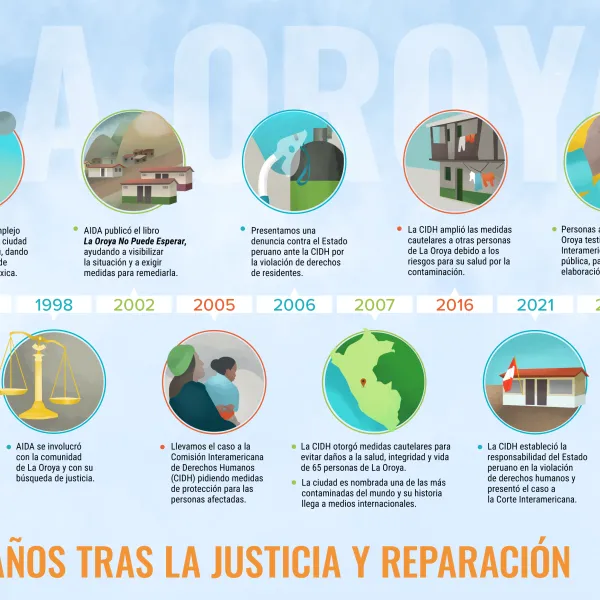
Related projects
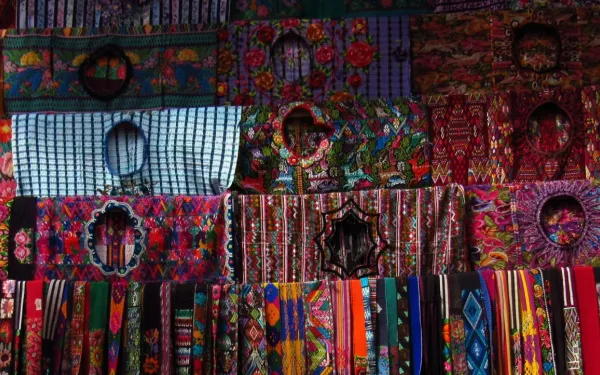
Organisations demand justice in criminalization case against Rigoberto Juárez, ancestral authority and environmental and human rights defender of Guatemala
Organisations dedicated to the protection of human rights defenders, and national and international organisations working on the promotion and protection of human rights and indigenous peoples rights, express our concern over the criminalization process against Rigoberto Juárez, ancestral authority, environmental and human rights defender, and general coordinator of the Plurinational Ancestral Government of the Original Nations Mayas Akateka, Chuj, Q’anjob’al y Popti’.The judicial process against Rigoberto began in 2015 due to his role as a mediator and ancestral authority in a land conflict within the Q'anjob'al territory, specifically in the Ixquisis micro-region. This conflict arose from the indigenous Maya community's resistance to the poorly implemented and unconsulted hydroelectric projects by Energía y Renovación S.A., financed by BID Invest.The judicial process lacked an intercultural and differentiated approach. Additionally, the decisions made in the second instance and by the cassation court have ignored the factual and legal arguments presented by the defense regarding Rigoberto Juárez's role as an ancestral authority, which involved, at the community's request, assuming a mediator role in the high-conflict situation.From the perspective of the signing organizations, this judicial process has been used as a reprisal mechanism against the human rights defender’s legitimate human rights work. In particular, due to his crucial role in bringing visibility to, and reporting on, the Ixquisis case through a complaint submitted to the Independent Consultation and Investigation Mechanism (MICI) of the Inter-American Development Bank. Evidence of this can be found in the temporal overlaps of this process with crucial moments of the complaint filed with the MICI.In view of this concerning situation, we request judicial authorities to consider the arguments submitted by the legal defense of Rigoberto Juárez in the amparo action filed on 22 August and to make a decision that takes into account the specific guarantees of Rigoberto Juárez as an ancestral authority and as an environmental and human rights defender. Likewise, we call on international human rights institutions to urge the State of Guatemala to resolve the case of Rigoberto in accordance with their international obligations, and to prevent and address the serious trend of criminalization of indigenous authorities exercising their rights and responsibilities. Signed by:International Platform against ImpunityProtection International MesoaméricaInteramerican Association for Environmental Defense (AIDA)Franciscans InternationalRed Nacional por la Defensa de la Soberanía Alimentaria en Guatemala (REDSAG)Bank Information CenterInternational Service for Human RightsFront Line DefendersNISGUA (Network in Solidarity with the People of Guatemala)ASERJUSP. Marco Tulio Recinos Torres. CPPS.Center for International Environmental Law (CIEL)María Eugenia Solís GarcíaAlba Cecilia del Rosario Mérida PiedrasantaPress contact:Víctor Quintanilla (Mexico), AIDA, [email protected], +521 5570522107
Read more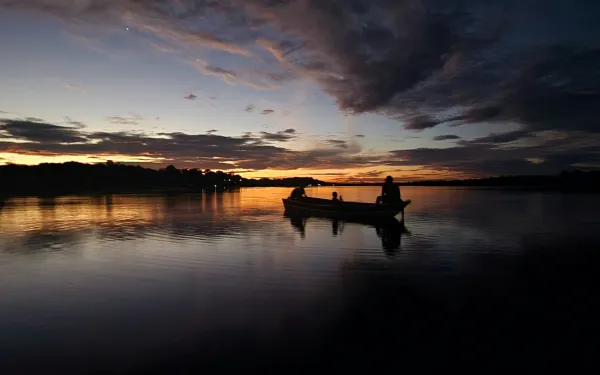
The Manaus Declaration on Human Rights in the Climate Emergency
Indigenous Peoples, local communities, Afrodescendants, tribal and rural communities, children and adolescents, women, LGBTQI+, non-governmental organizations, platforms, institutions, and individuals urge the Court and States to adopt minimum standards for the protection of human rights in the context of the climate emergency, as elaborated during the public hearings of the Advisory Opinion, particularly the one held in Manaus, Brazil, from May 25-29, where communities, peoples and civil society of the region met in an unprecedented judicial setting.We notice that the overall balance, after more than 30 years of international discussions regarding the climate emergency, is regrettable, as there is no evidence of an effective commitment by States to avoid greenhouse gas (GHG) emissions, to grant reparations to those who have suffered climate damage, and to ensure that changes in their internal laws and policies, including economic policies, are compatible with the average global temperature limit set in the Paris Agreement.We highlight that several international courts, including the Inter-American Court of Human Rights, have the historic opportunity to formally clarify the human rights obligations of States in the context of the climate emergency through its advisory function, and in that sense, to set robust standards for the protection of rights based on current international standards relating to the protection those populations that have been historically excluded and discriminated against, and that are significantly more vulnerable to the climate emergency. Read and download the declaration
Read more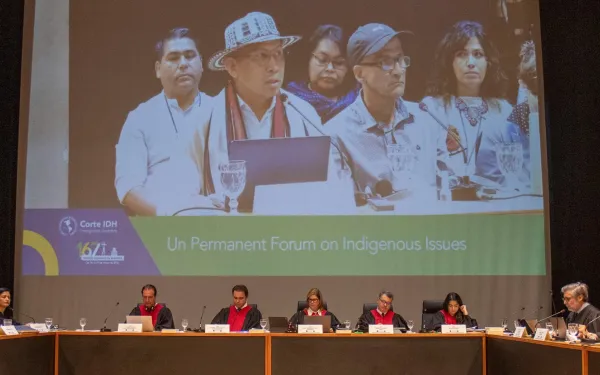
Declaration of Manaus urges the Inter-American Court to clarify State obligations in climate emergency
San Jose, Costa Rica - Today, a coalition comprising over 400 communities, Indigenous and Tribal Peoples, and representatives of civil society presented the “Declaration of Manaus on Human Rights in the Climate Emergency” to the Inter-American Court of Human Rights (IACtHR). The widely endorsed declaration calls on the Court to articulate, in its forthcoming Advisory Opinion on the Climate Emergency and Human Rights, minimum standards for respecting and protecting human rights in the context of the climate crisis. It draws upon the insights of more than 150 participants who contributed during the public hearings on the process of the Advisory Opinion mentioned.The hearings, conducted in Bridgetown, Barbados (April 22–25), Brasilia (May 24), and Manaus (May 25–29), Brazil, served as a forum for the presentation of compelling testimonies from individuals and entire communities impacted by the climate emergency. In Manaus, in the heart of the Amazon, there was a strong emphasis on the expectation that the Court would issue a robust advisory opinion aimed at ensuring the protection of both people and the planet.The Declaration urges the Court to clarify the human rights obligations of States and reinforce the accountability of corporations and financial actors for their role in the climate crisis."The role played by the IACtHR Advisory Opinion is strategic at a historic moment for climate justice globally. The Court’s decision can reinforce and expand on what has already been established by the International Tribunal for the Law of the Sea (ITLOS) on the obligations to protect the oceans from climate change. It will undoubtedly influence the subsequent interpretation of the International Court of Justice (ICJ) on the duties of States to protect communities and the planet in the face of the climate crisis," said Marcella Ribeiro, senior attorney with the Human Rights and Environment Program of the Interamerican Association for Environmental Defense. "The standards set by the Court will set new paradigms for access to justice in the context of the triple planetary crisis, influencing pending and future cases, as well as laws and policies inside and outside the continent. Lastly, this decision has great potential to help overcome the political impasse in the international climate negotiations."The Declaration, signed by over 400 parties, requests the Court to:Acknowledge that in the face of the climate emergency, all human rights, including the right to a healthy environment, must be upheld by all States. This obligation should be interpreted under the principle of Common but Differentiated Responsibilities and in line with the average global temperature increase limit established by the Paris Agreement and informed by the best available science.Specify that States need to transition to fossil-free economies without harming local communities and causing environmental impacts that exceed planetary limits.Ensure public access to information and participation, as well as the right to climate justice. This includes providing legal and institutional mechanisms for communities affected by the crisis to seek legal recourse, as well as raising awareness and training the judiciary on climate-related issues.Protect and facilitate the work of environmental defenders in the context of the climate emergency and energy transition.Guarantee adaptation measures to address the effects of climate change, ensuring the protection of all human rights, especially for vulnerable or historically discriminated groups.Uphold the right to self-determination of Indigenous and Tribal Peoples by obtaining their consent for measures directly affecting them in the context of climate change and energy transition.Ensure that victims and survivors of climate-related harm are granted comprehensive and just reparations and that climate judgments have financial resources for their implementation. "The Manaus Declaration also addresses corporate responsibility for the crisis. We urge the Court to reinforce States’ obligations to regulate corporate actors and ensure that those responsible for human rights violations related to the climate crisis are held accountable," adds Luisa Gómez Betancur, senior attorney at the Center for International Environmental Law (CIEL). "Consistent with the polluter pays principle in international law, fossil fuel and agribusiness companies that are the primary drivers of climate change must cover the costs of mitigation and adaptation, as well as provide full reparation to victims for climate harm."Those supporting the Declaration are urging the IACtHR, as a guardian of human rights, to take a strong and forward-thinking stance. This approach should hold those who have had the most impact on the climate crisis responsible, guide inter-American policies towards environmentally sustainable economies, and establish a foundation for climate, environmental, and social justice worldwide, starting with Latin America."We hope that by listening to the testimonies of those of us who suffer the worst consequences of the climate emergency, the IACtHR will heed our call and order the States to respect our right to self-determination and the way in which we relate to our territories, prioritizing their care and conservation. For this reason, we join our voices in the Manaus declaration to remind the Court of the unique opportunity it has to mark a before and after in the fight for climate justice and the protection of our rights," said Everildys Córdoba Borja, legal representative of the Community Council of Black Communities of the Tolo River Basin and Southern Coastal Zone (COCOMASUR), Colombia.Read and download the declaration Press contactsNiccolo Sarno, CIEL, [email protected] Arista, EarthRights International, [email protected], +51 941 242 447Karina Saravia, CANLA, [email protected], +505 84331292
Read more